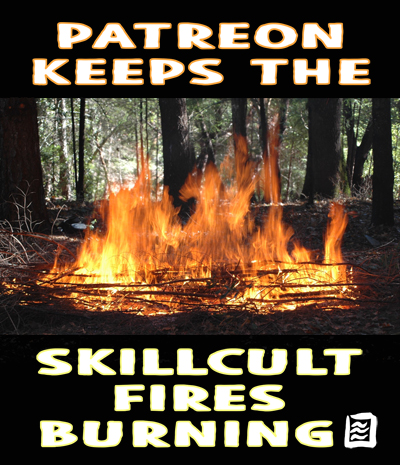I have gotten a lot of questions about biochar stuff. Common questions concern crushing, pre-charging, quantities to use, how does it work and so on. This video was just me trying to quickly discuss some of that stuff. Many questions I can't answer. I know very little technical information about biochar. I'm not up on the latest theories and research. I'm mostly interested right now in how it works here using simple methods of production and applications, and what percentages I want to use; and by extension approaches to experimentation and production that might suit average people well. Setting up experiments for long term observations is of great interest to me as well. I probably am going out of my way not to consume too much information on biochar. For one thing, it's boring. Also though, I often prefer to work with minimal information. It forces me to observe and think a lot and not be overly polluted with the stuff. I know that probably seems counter intuitive to a lot of people. Why not take in all the data, parse it and try to put it to best use? Because information influences our thinking and behavior and not always in a good way. It changes our lines of thinking and thus our experiments. Possibly for the better at times, but not always. Assessing the relevance and veracity of quantities of complex information is not a clear cut easy task. I remember one time coming to the idea that early inventors, like Tesla or Rife lets say, were so innovative because they hadn't learned what was and wasn't possible yet. A major problem causing stagnation of progress is the institutionalization of ideas and dogmatic sub cultures. These cliques form a sort of immune system or armor to deal with information that doesn't agree with a standardized dogma or theory. Open inquiry in groups of study are not the norm. I wonder if that idea is even close to achievable actually. We all operate in an invisible matrix of language and social constructs, but I think there are things we can do to think more freely and information consumption has something to do with that.
Information is a double edged sword. Information could be seen as having a place on a scale that runs from straight untested raw information on one end to thoroughly proven information on the other, or what we might call hard verified fact. Placing any information on that scale as to the level of confidence you have in it's veracity is not necessarily an easy task. Much (probably most) information, if viewed honestly, floats in limbo remaining of very unknown status on this scale of confidence. Simply knowing that much of information is best considered to be in that limbo is helpful, but if we consume it, it still influences us. My modus operandi is basically consumption of small amounts of information and then long, un-rushed, experimentation, observation and contemplation. I didn't develop this approach as a theory, I just noticed that I did it as a preference and now it's more of a conscious philosophy. I think it forces me to think of things in my terms and context more than someone else's, or in a group's. I think it also cultivates intuition, which I'm a big fan of. My observations or theories on biochar may or may not be verified by future information and cross pollination with other explorers and researchers, but either outcome is instructive in some way.
All of which I started to say because this isn't me spitting out a series of stuff that I learned by research, so much as thoughts and observations and ways to think about the problem. The important thing with this sort of activity, at least from an on the ground application standpoint, is does it work, rather than how does it work. How it works could be very useful for informing our practice, but for now, we have good archeaologic and historic records to indicate the efficacy of char modified soils. Normal people with simple means can attempt to replicate those results without over complicating the thing, because it is unlikely that these ancients were operating on some very sophisticated principals of production, application and technical understanding. We can always build and modify our knowledge and practice from there. Sometimes the best solution remains the simple solution.





